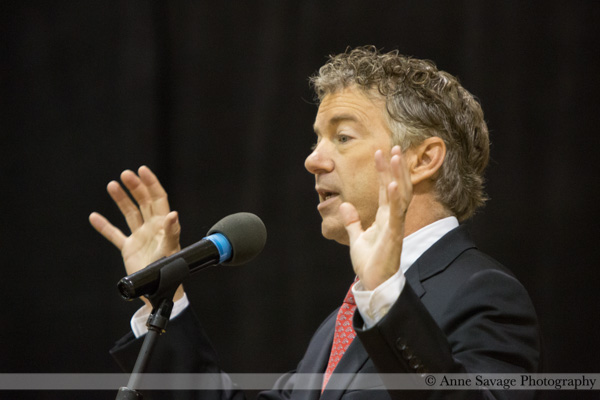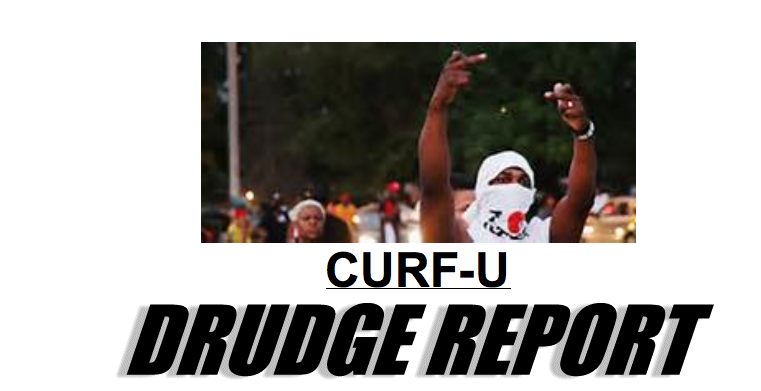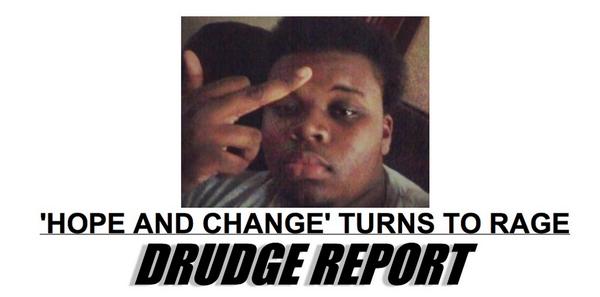
After what had been the worst night of unrest in Ferguson, Missouri in response the killing of 18-year old Michael Brown by a police officer, a flurry of statements from politicians on Thursday condemned the aggressive action of the local police.
Senator Elizabeth Warren and Rep. Justin Amash issued nearly identical statements noting that this is America, not a war zone.
President Obama insisted that there is never an excuse for violence against the police along with “no excuse for police to use excessive force against peaceful protests or to throw protesters in jail for lawfully exercising their First Amendment rights.”
Notably the president stayed away from any comment upon the issues of race, police brutality or police militarization that have charged the national debate about what’s going on in Ferguson. Many suggested that the backlash of his comments about the arrest of Henry Gates and the death of Trayvon Martin had shied him away from wading into these rapids.
The worst of the right said he was fueling the fire by even making a statement and were then pleased that he did not actively engage the underlying issues of the conflict.
Senator Rand Paul’s column in Time was perhaps the most eagerly anticipated response to the police’s overreaction, and he succeeded finding the sweet spot where “libertarian” concerns for civil liberties intersect with civil rights:
Anyone who thinks that race does not still, even if inadvertently, skew the application of criminal justice in this country is just not paying close enough attention. Our prisons are full of black and brown men and women who are serving inappropriately long and harsh sentences for non-violent mistakes in their youth.
Paul has been an opponent of the drug war and police militarization for years. But rarely has he connected racial bias — which is at the the heart of the national mass incarceration crisis described by Michelle Alexander in The New Jim Crow — so directly to the issue, and never at a more poignant time. (Though his “even if inadvertently” is a convenient hedge.)
Liberals like Rep. John Conyers cheered the Senator’s comments and asked him to join calls for a Department of Justice investigation into racial profiling to help stop the targeting of minorities by local police. Salon‘s Jim Newell suggested that Paul call for a new vote on the president’s nominee to lead the DOJ’s Civil Rights Division Debo Adegbile, who was defeated for not showing ample respect for the infallibility of the police.
Paul will do neither.
But he has done something pretty remarkable. He’s stated that America’s justice system isn’t color-blind, as the right often insists, and that there is a problem to fix that starts with how minorities are treated by the police. And he did this without triggering a massive backlash from Fox News or any other major right-wing outlet.
The Drudge Report, the third most popular conservative website, trumpeted Paul’s comments — even as it continues to inflame with the exact sort of images that are always used to justify strong-arm police tactics against minorities.


In his campaign for governor of California, Ronald Reagan’s advisers told him to back off condemning the war protesters whom he constantly labeled as lawless and childish, Rick Perlstein notes in his fantastic new book that tracks Nixon’s fall and Reagan’s ascent The Invisible Bridge. The Gipper didn’t listen and struck a cord with the Silent Majority who were sick of being told that American needs to be fixed.
Is this a bizarro Reagan moment? After generations of the GOP’s “Southern Strategy,” will Paul’s ascent be marked by his willingness to use expand the conservative critique to include advocacy of the rights of those in the inner city?
Kentucky.com‘s Sam Youngman says the normal rules of politics don’t apply for his state’s junior Senator. The Daily Beast‘s Olivia Nuzzi says Democrats are scared Paul.
I do think Paul is the one candidate who does display the potential to reach out to demographics that have previously been indifferent to conservative arguments — particularly young white males.
I also think he would lose the senior vote by double digits, triggering a landslide of Goldwater proportions — and his op-ed about Ferguson shows why.
Paul’s entire argument turns on the phrase, “big government has been at the heart of the problem.” This is how he nods to the right that he is still one of them and speaks some truth about how the federalization of the drug war has led to mass incarceration.
But to Paul, “big government” isn’t just a problem when it puts local police on military steroids. It’s a problem when it does anything — except ban a women’s right to chose and some forms of birth control.
The Senator released a budget in 2013 that was mostly ignored at the time but was meant to be a conservative alternative to the already brutal budget from Paul Ryan. Paul’s plan would immediately privatize Social Security and Medicare. It would also cut taxes for billionaires and raise them on a middle class that has been shrinking since Reagan took office.
Of course, Paul has no compunction about completely denying things he has furiously advocated for in the past — even when the comments are on video. But he will have no choice to embrace these stands in some form for a pretty simple reason — they are the part of the conservative orthodoxy he completely buys into.
President Obama’s Justice Department has been far better on civil rights than civil liberties. He’s the first Commander-in-Chief who has taken steps to rein in the drug war. But he is limited by his own prudence from making the racial critique about police militarization that Paul volunteered.
Paul’s principled beliefs along with his eagerness to present himself as a new type of Republican compelled him to thrust this necessary analysis into our national discourse. And we now face the prospect of the drug war becoming an issue in a Republican presidential primary.
While libertarians like Paul and the journalist Radley Balko have advanced to these issues to a new audience, the argument that police forces need to be checked not armed by the federal government has long been a liberal concern.
That Rand Paul wants to include issues of racial justice in the 2016 is a victory for the left, which can leave behind the party’s cynical embrace of drug war policies over the past few decades. And how the right responds to this issue, given its appalling recent record on voting rights, is a huge test of its ability to adapt to the twenty-first century.
[Image by Anne Savage]



